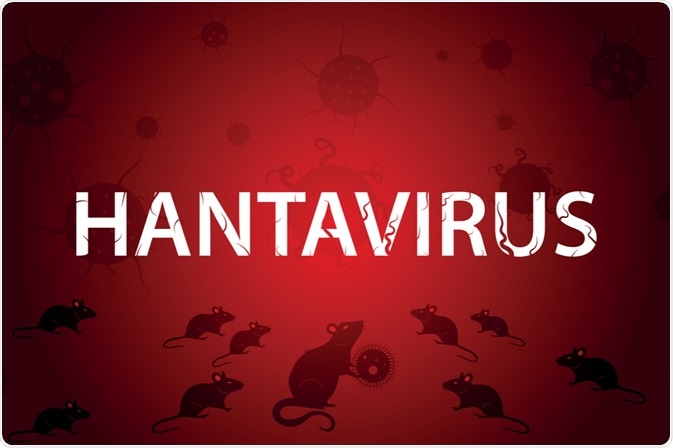The hantavirus is a member of the Bunyavirus family, which is usually found in rodents. These viruses can be transmitted from rodents to humans through inhalation of aerosols from the rodent's urine, saliva, or droppings.

Image Credit: manabanana / Shutterstock.com
The hantavirus pulmonary syndrome
One variety of the hantavirus known as the Sin Nombre virus, which is carried in a species of mouse called the deer mouse, causes an illness called hantavirus pulmonary syndrome (HPS). The virus is not infectious to pets or predators. Moreover, the illness is not transmitted from person to person.
There are several other types of hantaviruses that can cause diseases, such as hemorrhagic fever with renal syndrome (HFRS), which primarily affects individuals in Asia.
The symptoms of HPS typically arise between one and six weeks after inhaling the infected aerosols. The initial symptoms of HPS include a fever at or above 38.3 ºC (101 ºF), headache, muscle pain, tiredness, nausea, and vomiting.
In severe cases, these symptoms will progress to breathlessness as a result of fluid accumulation in the lungs. It requires hospitalization and may progress to a total inability to breathe. Death follows in a third of patients.
Complications of hantavirus infection
There are several complications that can arise as a result of infection by a hantavirus, some of which include:
- Adult Respiratory Distress Syndrome (ARDS)
- Renal failure
- Low blood pressure
- Bluish coloration of the lips and skin, due to lung failure leading to deoxygenation of the blood
Diagnosis and treatment
Hantavirus infection should be considered if there is a history of possible rodent exposure, with symptoms agreeing with those of HPS. Diagnostic tests include enzyme-linked immunosorbent assay (ELISA) - immunoglobulin M (IgM) capture tests, IgG tests, as well as other serological tests. Immunohistochemistry (IHC) is another specific and sensitive test for the presence of antibodies to the virus.
Early supportive care for hantavirus patients is the only available treatment. This may involve the use of ventilation, oxygen inhalation, and special forms of blood oxygenation outside the body. There is no specific drug to eliminate the virus infection. Recovery is not followed by any long-term sequelae.
How to Survive a Hantavirus
Prevention
Several different preventative measures can be employed to protect individuals from getting infected by hantavirus. First and foremost, it is generally recommended to keep rodents out of the home by sealing all openings which are above a quarter-inch wide. All food should also be kept in rodent-proof containers in order to prevent infection in the event that rodents do enter the home.
Certain precautions should also be employed to prevent the inhalation of infected air while cleaning out or working in any rodent-infested area. These include wearing gloves and a mask and avoiding any movement of the dust that could allow infected particles to enter the air.
Any areas that are potentially infected should be soaked with a bleach solution. An appropriate bleach solution that can be used for decontamination includes 350 ml bleach that is added to every 4.5 liters of water. Once cleaned with this solution, the contaminated area can then be wiped out rather than swept clean.
All dead rodents should be disposed of safely and in accordance with local codes after double-bagging them, along with whatever cleaning materials used. All gloves that handle contaminated materials should be disinfected prior to their removal. Afterward, hands should be washed immediately with soap and water, or with an alcohol-based sanitizer.
While camping out, it is recommended that individuals use a groundsheet to sleep on rather than the ground. While at these locations, the use of places with signs of rat infestation as campsites should be strictly avoided.
To avoid attracting rodents while camping, any food products should be stored in suitable containers and disposed of properly. If staying in a cabin that is not regularly used, campers should first air it well for 30 minutes by opening the windows and doors. All furniture, countertops, and other household items should then be disinfected with the aforementioned bleach solution and wiped down before use.
References
Further Reading
Last Updated: Apr 16, 2021